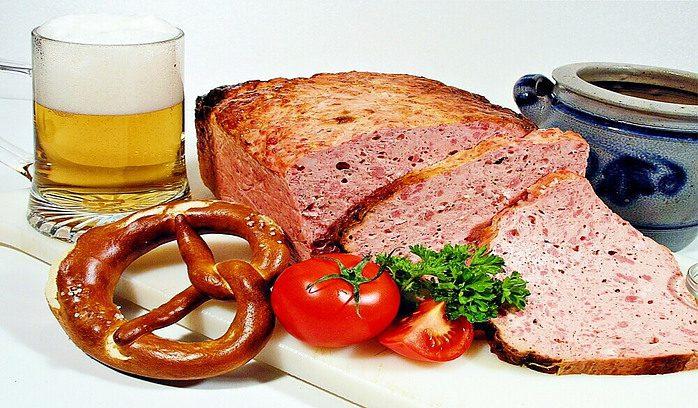Introduction to Health Benefits of Eating Oatmeal Daily
I, for one enjoy a morning bowl of oatmeal. Admittedly, I rarely eat it just plain, normally adding raisins and walnuts. I sometimes add a teaspoon of honey as well. This meal is not only nutritious, but oatmeal is filling, and when adding in healthy items (no processed sugar), it can be a nutritional powerhouse.
Many nutritionists and health professional encourage the eating of oatmeal as a healthy breakfast. This article, from Eating Well, highlights what happens to your body with a regimen of daily oatmeal. In addition, oats are actually a useful food beyond just breakfast, commonly used in baking, but also main dishes and beverages.
In addition to being nutritious, studies have shown that oats and oatmeal have many health benefits. These include weight loss, lower blood sugar levels, and a reduced risk of heart disease.
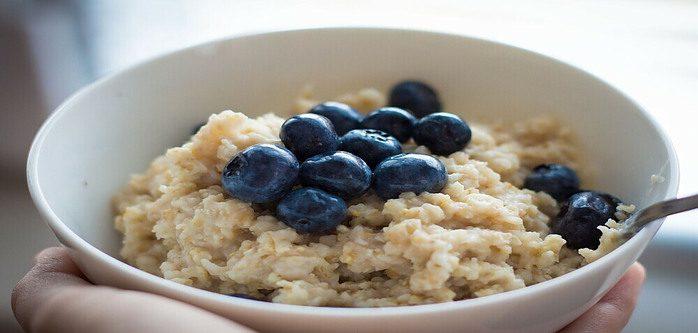
More About Oats and Oatmeal
Oats, scientifically known as Avena sativa, are a type of whole grain food. The least processed form is oat groats, but they require a longer cooking time. As an alternative, many opt for rolled, crushed, or steel-cut oats.
Among the processed varieties, instant (quick) oats are the most highly processed. Although they cook quickly, the texture may be on the mushy side. In addition, they will have the potential to spike your blood sugar more than rolled or cut oats. Oats are frequently consumed for breakfast in the form of oatmeal, created by boiling oats in water or milk. This breakfast dish is commonly referred to as porridge.
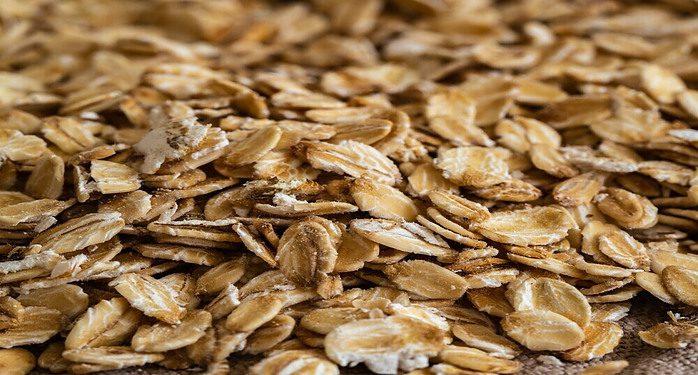
Three Primary Kinds of Oats
Steel Cut Oats
Steel-cut oats, also referred to as Irish oats, originate from the initial stage of oat processing. These oat kernels have undergone the removal of their outer shells. In essence, steel-cut oats represent the least processed variety, which accounts for their lengthier cooking time. Steel-cut oats aren’t rolled or flattened, but they are cut. The absence of flattening means that steel-cut oats require a slightly longer cooking time compared to rolled oats.
I have found that the consistency of cooked Irish oats is thicker and heavier than the rolled or old-fashioned oatmeal most of us are used to. If you are familiar with Cream of Wheat or Malt-o-Meal, that would be a comparable consistency.
Rolled Oats
As previously mentioned, the key distinction among oat products lies in the manufacturing process, influencing both texture and cooking time. In contrast to steel-cut oats, rolled oats—also known as old-fashioned oats—undergo a flattening process. Following the removal of the oat hull, rolled oats are steamed and pressed flat. This particular process imparts a softer texture to the oats and diminishes their cooking time. This is by far my preferred “oatmeal”.
Instant or “Quick” Oats
Instant oats are derived by thinly cutting rolled oats, facilitating a quick cooking process. Among the three varieties, instant oats—also referred to as quick oats—are the quickest to prepare. In addition, I would define them as the “lightest” and least filling of the three alternatives.
Which Variety of Oatmeal is the Healthiest?
Upon examining the nutritional profiles of the three main types of oats, it becomes evident that they share remarkably similar nutritional characteristics. In terms of plain oats, there isn’t a single type that stands out as healthier than the others. It’s a common misconception that one type of oat is healthier than another. They are all actually identical in terms of their nutrition. The difference lies in how they are rolled and cut. However, when buying quick oats, they are available in a variety of forms. They can come as plain quick oats is the typical circular carton…or they may come as “instant oatmeal”. Typically, if you buy them as instant oatmeal, sugars, salt and flavors have been added, which cause them to be less healthy than just “plain” oats.
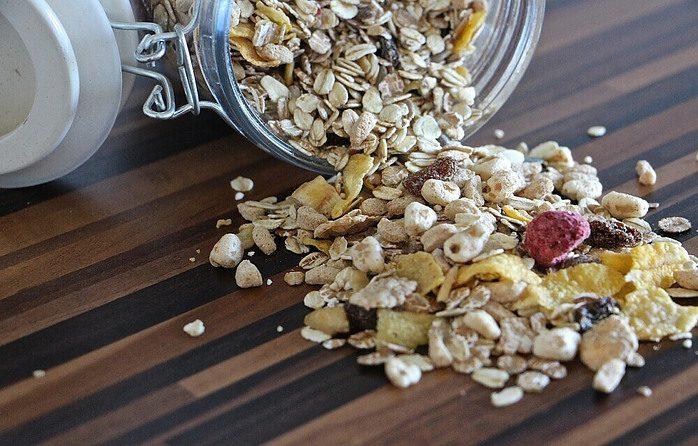
Health Benefits of Oats
As you can see in the summary below, there are numerous and diverse health benefits of oats, ranging from nutritional richness to potential contributions to heart health, blood sugar regulation, weight management, skin care, asthma prevention, and constipation relief.
1. Nutrient-Rich Oats:
Oats boast a well-balanced nutrient composition, serving as an excellent source of carbohydrates and fiber, particularly the beneficial beta-glucan. Additionally, oats provide high-quality protein with a balanced array of essential amino acids. Loaded with vital vitamins, minerals, and antioxidant plant compounds, half a cup of dry oats contains significant percentages of daily values for manganese, phosphorus, magnesium, copper, iron, zinc, folate, vitamin B1, and vitamin B5, along with smaller amounts of calcium, potassium, vitamin B6, and vitamin B3. The nutritional profile of one cup of prepared oatmeal includes 27.4g of carbs, 5.3g of protein, 2.6g of fat, 4g of fiber, and 153.5 calories.
Summary: Oats offer a rich nutritional profile, featuring a balance of carbs, fiber, protein, and essential vitamins and minerals.
2. Antioxidant-Rich Whole Oats:
Whole oats stand out for their high antioxidant content, particularly the unique group called avenanthramides, exclusive to oats. Research suggests that these antioxidants may contribute to lowering blood pressure by enhancing nitric oxide production, leading to improved blood flow. Avenanthramides also exhibit anti-inflammatory and anti-itching effects.
Summary: Oats, rich in antioxidants like avenanthramides, may help reduce blood pressure and possess anti-inflammatory properties.
3. Powerful Soluble Fiber in Oats:
Oats contain substantial amounts of beta-glucan, a soluble fiber that forms a thick, gel-like solution in the gut. The health benefits of beta-glucan include reduced blood glucose and insulin response, increased growth of beneficial gut bacteria, and regulation of type 2 diabetes.
Summary: Oats, high in beta-glucan, offer numerous benefits such as blood glucose reduction and promotion of healthy gut bacteria.
4. Cholesterol-Lowering Potential:
Beta-glucan fiber in oats has been shown to effectively lower both total and LDL (bad) cholesterol levels. This may be attributed to increased release of cholesterol-rich bile, reducing circulating cholesterol, and protecting LDL cholesterol from oxidation, a crucial step in heart disease progression.
Summary: Oats may lower the risk of heart disease by reducing cholesterol levels and protecting LDL cholesterol from oxidation.
5. Blood Sugar Regulation:
Oats have the potential to lower blood sugar levels, especially in individuals with obesity or type 2 diabetes. Beta-glucan’s ability to form a thick gel delays stomach emptying and glucose absorption, contributing to improved insulin sensitivity.
Summary: Oats, through beta-glucan, may improve insulin sensitivity and help lower blood sugar levels.
6. Weight Management with Oatmeal:
Oatmeal, known for its deliciousness, is also highly filling. The beta-glucan in oatmeal delays stomach emptying, increasing the feeling of fullness. Additionally, it may stimulate the release of the satiety hormone PYY, potentially reducing calorie intake and lowering the risk of obesity.
Summary: Oatmeal may aid weight loss by promoting a sense of fullness and influencing the release of the satiety hormone.
7. Skin Care Benefits:
Finely ground oats, known as colloidal oatmeal, have been approved by the FDA as a skin-protective substance. Used in various skin care products, colloidal oatmeal may alleviate symptoms of dry and itchy skin, particularly in conditions like eczema.
Summary: Colloidal oatmeal offers skin care benefits, relieving symptoms of dry and itchy skin.
8. Potential in Childhood Asthma Prevention:
Some research suggests that early introduction of oats in a child’s diet may protect against the development of asthma. However, more research is needed to establish a definitive link between oats and asthma prevention in children.
Summary: Oats may have a role in preventing childhood asthma, but further research is required for conclusive evidence.
9. Relieving Constipation:
Oat bran, the fiber-rich outer layer of oats, has shown promise in relieving constipation. Studies indicate its effectiveness, with potential benefits for those with ulcerative colitis. However, the soluble fiber in oats may be less effective against opioid-induced constipation.
Summary: Oat bran, rich in soluble fiber, may be effective in relieving constipation, with potential benefits for digestive health.
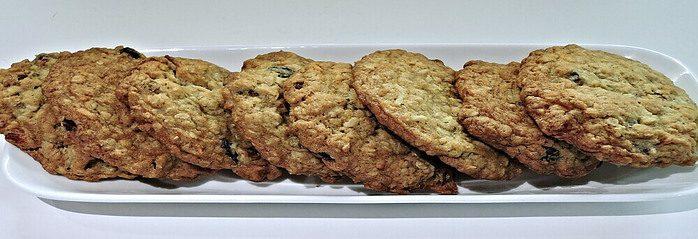
How to Incorporate Oats into Your Diet
There are various delightful ways to include oats in your diet, with the most popular being to enjoy oatmeal (porridge) for breakfast.
Classic Recipe For Oatmeal (see my recipe below for a quicker, simpler solution):
Ingredients:
- ½-3/4 cup rolled oats
- 1 cup (250 ml) water or milk
- A pinch of salt
Instructions:
- Combine the ingredients in a pot and bring them to a boil.
- Reduce the heat to a simmer and cook the oats, stirring occasionally, until they reach a soft consistency.
- To enhance the flavor and nutrition of your oatmeal, consider adding ingredients such as cinnamon, fruits, nuts, seeds, and Greek yogurt.
Mike’s Recipe for Oatmeal
Frankly, this article shows that the microwave can be your morning’s best friend. It appears that microwave cooking is actually one of the least likely forms of cooking to damage nutrients. Why bother with boiling water or milk when you can just “nuke” it?
Ingredients:
- ¾-1 cup rolled oats
- 1 cup (250 ml) water or milk
Instructions:
- Combine the ingredients in a bowl and microwave on high for 1 minute.
- Take out bowl and stir. Return to the microwave and cook another 30 seconds.
- To enhance the flavor and nutrition of your oatmeal, consider adding ingredients such as cinnamon, fruits, nuts, and seeds. My daily norm is raisins and walnuts. If I want to make sure I get my daily spoonful of honey, I add that too.
Other Uses for Oatmeal
Oats also find their way into various other culinary creations, including baked goods, muesli, granola, and bread. I admit to being a sucker for a good oatmeal raisin cookie. Explore the versatility of oats to add a wholesome touch to your meals:
Expert Resources
- What Happens to Your Body When You Eat Oatmeal Every Day – EatingWell
- 8 Ways to Use Oats That Aren’t Oatmeal – EatingWell
- Take a fresh look at oatmeal – it’s not as simple as you think – American Heart Association
- Oats; The Nutrition Source – Harvard School of Public Health
- Start your day with healthy oatmeal – Mayo Clinic Health System
Related Content from Optimal Retirement Living
